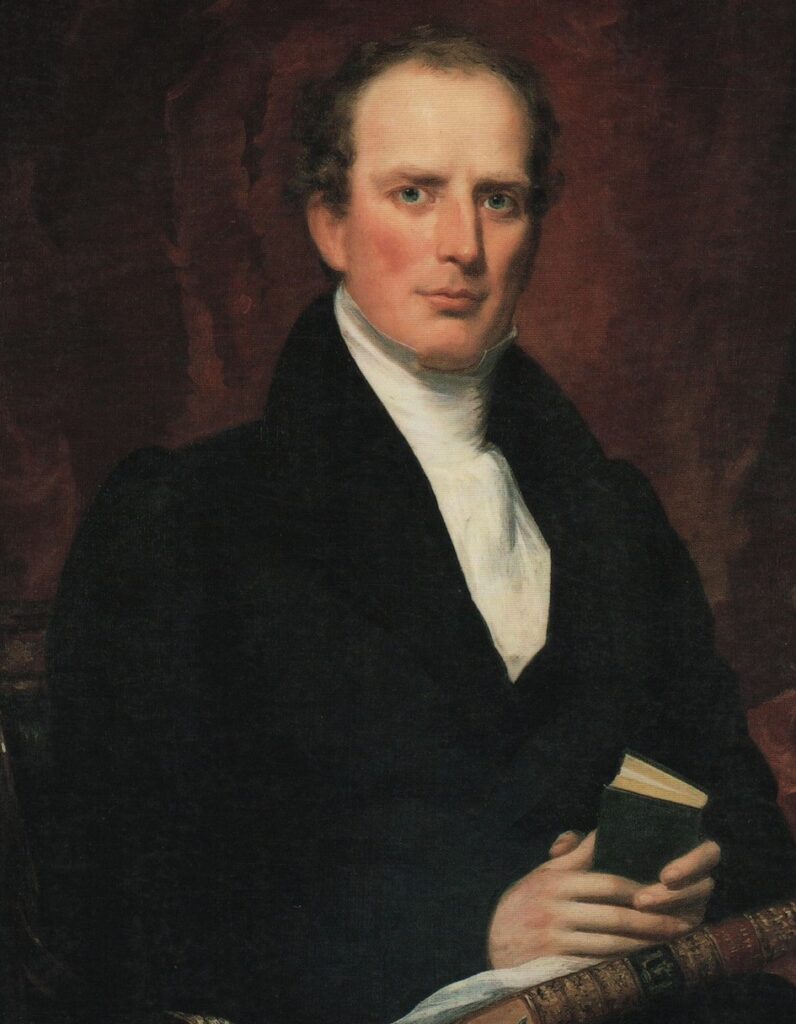Finney was born in Connecticut and raised in Oneida County, New York. After teaching in New Jersey for a couple of years, he returned to New York to help his seriously ill mother. He also began studying law and became an assistant to a judge in Adams. The 29-year-old barrister Charles Grandison Finney had determined he must work out the question of his salvation. So on the 10th of October 1821, he left for the forest near his Adams, New York, home to search for God. “I will give my heart to God, or I never will come down from there,” he said. After many hours, he went to his office, where he experienced powerful emotions that he would often question those who could not testify of such experience or emotion. “The Holy Spirit seemed to go through me, body and soul,” he later said. “I could feel the impression, like a wave of electricity, going through and through me. Indeed it seemed to come in waves of liquid love, for I could not express it in any other way.” Finney, the next morning, went to his office to meet with a client. “I have a retainer from the Lord Jesus Christ to plead his cause and cannot plead yours”, he told the client.
A NEW LIFE
After being converted, Finney groomed for ministry in the Presbyterian church and in 1824 he was ordained. Theological belief then was that God elected some and not others for salvation, no matter what they do, but Finney’s message which was more like the argument of a lawyer than the sermon of a pastor urged his listeners to accept Christ openly and publicly.
At Evans Mills, he was concerned that the congregations repeatedly said they were “pleased” with his preaching. He embarked on the quest of making his sermon less pleasing and more productive. While rounding up his sermon, which emphasized the urgency for conversion, he announced boldly: “You who have made up your minds to become Christians, and will give your pledge to make your peace with God immediately, should rise up. “The entire congregation, who had never been challenged in that way, remained in their seats. “You have taken your stand,” he said. “You have rejected Christ and his gospel.” With that Church closed and many left upset.
A FIERY GOSPEL
Finney preached about wickedness the next evening, his voice was described to have been like a fire, a hammer, a sword but he didn’t leave room for them to interject his sermon. The next night, the entire town came out to hear him preach, including a man who was so angry with him that he came with a gun with the intent to kill the Finney but that night, Finney again provided the congregants an opportunity to publicly affirm their faith. A great number of the congregation stood up to give their pledge, some others fell down, some groaned, and some cried. Finney spoke for many nights, paying visits to the new converts at home and on the streets. Across the board, many thought that his habitual use of the words you and hell “let down the dignity of the pulpit.”
The peak of Finney’s ministry was reached at Rochester, New York. Here he preached 98 sermons in 6 months. Shops closed, putting up signs imploring people to be at Finney’s meetings. It was reported that the population of the town went up by two-thirds and crime dropped by two-thirds over the same time during the revival. A pastor who was converted in the Rochester meetings gave a report of the outcome of Finney’s meetings in that city: “The whole community was stirred. Religion was the topic of conversation in the house, in the shop, in the office and on the street. The only theater in the city was converted into a livery stable; the only circus into a soap and candle factory. Grog shops were closed; the Sabbath was honored; the sanctuaries were thronged with happy worshippers; a new impulse was given to every philanthropic enterprise; the fountains of benevolence were opened, and men lived to good. “Finney produced a variety of books and articles. He is referred to as the “father of modern revivalism” by some historians, and he cemented the way for evangelists like Dwight L. Moody, Billy Graham and Billy Sunday.


